The cryptocurrency market exploded after US President Donald Trump announced plans to establish a national digital currency reserve, marking a potential turning point in the world's financial history. However, the road has not been smooth.
Since his 2024 campaign promise, US President Donald Trump has made moves to legitimize cryptocurrency as a strategic asset of the US. On March 2, on the social network Truth Social, Mr. Trump reiterated his plan to establish a national strategic reserve. He said he had directed US officials to establish a reserve including Bitcoin (BTC), Ethereum (ETH), Ripple (XRP), Solana (SOL) and Cardano (ADA) tokens and affirmed that "it will definitely turn the US into the cryptocurrency capital of the world".
This plan not only stirred up the cryptocurrency community, bringing many cryptocurrencies back to a strong increase after the previous decline, but also raised a big question: Can the US take advantage of its cryptocurrency reserves to reshape global financial power, in the context of the US dollar facing new challenges?
New direction in US financial strategy
For about eight decades, since the Bretton Woods Conference in 1944, the US dollar has been the world’s reserve currency, initially based on the gold held by the US Treasury. However, the recent rise of emerging economies , especially China, and the trend of countries diversifying their foreign exchange reserves are causing the role of the US dollar to decline.
According to the International Monetary Fund (IMF), the share of the US dollar in global central banks' foreign exchange reserves has fallen from 72% in 2000 to 58% in 2023. Meanwhile, according to the People's Bank of China (PBoC), the country now settles 25% of its trade transactions in renminbi (CNY).
In addition, the emergence of the digital currency Yuan issued by PBoC (e-CNY) as well as the explosive growth of many other digital currencies such as Bitcoin have caused concern in the US, putting unprecedented pressure on the dominant position of the USD.
Mr. Trump's proposal for a cryptocurrency reserve, with a focus on Bitcoin, Ethereum, and other major coins, is seen as a strategic effort for the US to not only adapt but also lead in the digital financial era.
The digital currency reserve, if approved by the US Congress , would not only be a “digital gold mine” but also be seen as a tool for the US to consolidate its economic influence. This idea comes from the perception that cryptocurrencies are gradually becoming an indispensable part of the global financial system. Previously, a number of large financial institutions such as BlackRock and JPMorgan… have opened investment funds in Bitcoin, and soon Ethereum and stable coins.
The size of the cryptocurrency market has also increased sharply in the past few years. The market capitalization as of the afternoon of March 3 exceeded the $3,000 billion mark. This is also a signal that if the US government stays out of this game, it means giving the field to geopolitical rivals.
More than just hoarding Bitcoin or Ethereum, cryptocurrency reserves can also contribute to the development of blockchain - the core technology of digital currencies.

Impact on global financial power
It can be seen that if the US recognizes cryptocurrencies as legal reserve assets, this could trigger a wave of similar adoption from other countries, thereby increasing the liquidity and value of major cryptocurrencies.
Moreover, this reserve could also become a tool to hedge against economic risks. In a context where global inflation remains a concern and uncontrolled money printing policies have been controversial, Bitcoin - with a fixed supply of 21 million - is seen as a “digital gold” that can preserve value. If the US hoards a large amount of Bitcoin, the country will not only protect its assets from currency fluctuations but also put pressure on other countries to revalue their national reserves.
Currently, the US's financial power is largely based on the SWIFT system and the role of the USD in international trade, with the USD payment rate worldwide reaching about 50%.
However, this system is under threat from initiatives such as China's cross-border blockchain and emerging economic alliances such as BRICS (Russia, China, Brazil, India and South Africa…) that want to reduce dependence on the USD.
A digital currency reserve could be America’s answer to maintaining its leadership. By integrating digital currencies into its national reserves, the United States could shape global standards for the management and use of digital currencies, thereby controlling a significant portion of digital financial flows.
However, the road to a digital reserve is not smooth. First of all, the volatility of digital currencies is a major barrier. Bitcoin prices can skyrocket today but can also plummet unexpectedly, as the price dropped from $100,000 to $80,000 in recent days, posing a risk to national reserves. This instability makes it difficult for digital currencies to meet the standards of a traditional reserve asset like gold or the US dollar.
Second, the legal framework in the US remains unclear. Despite Mr Trump’s support for digital currencies, the US Congress – which is divided between the two parties – could delay or refuse to pass the necessary legislation. Conservative lawmakers are concerned about the risks of money laundering and terrorist financing. Without consensus, the plan may remain just an idea.
Finally, the international response is also important. Some ECB officials have expressed skepticism about including Bitcoin in their reserves, arguing that it is not liquid and stable enough. If major allies like the EU do not support it, the US could face isolation in its efforts to reshape the global financial system.
Despite the challenges, if the reserve is successfully deployed, the US could transform cryptocurrencies from a speculative asset into a strategic tool that not only strengthens financial power but also spurs technological innovation. The first-ever White House Crypto Summit, scheduled for March 7, will be where Trump and industry leaders will discuss how to make this vision a reality.
Furthermore, the involvement of figures like Elon Musk – a fervent supporter of cryptocurrencies – could add momentum. If Tesla or other large companies start hoarding Bitcoin as part of their corporate strategy, it could spur a similar trend at the national level, creating a global domino effect.
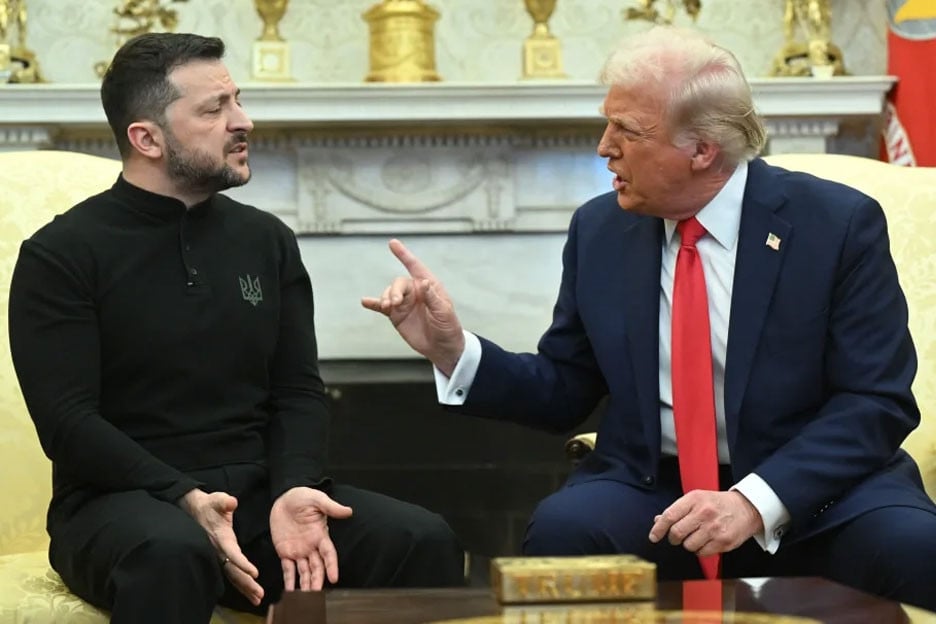
Source: https://vietnamnet.vn/ong-trump-cong-bo-kho-du-tru-tien-so-xac-lap-lai-quyen-luc-tai-chinh-toan-cau-2377025.html



![[Photo] Ready for the top competitions of Vietnamese table tennis](https://vphoto.vietnam.vn/thumb/1200x675/vietnam/resource/IMAGE/2025/5/18/9c547c497c5a4ade8f98c8e7d44f5a41)
![[Photo] Many young people patiently lined up under the hot sun to receive a special supplement from Nhan Dan Newspaper.](https://vphoto.vietnam.vn/thumb/1200x675/vietnam/resource/IMAGE/2025/5/18/6f19d322f9364f0ebb6fbfe9377842d3)

![[Photo] Party and State leaders attend the special art program "You are Ho Chi Minh"](https://vphoto.vietnam.vn/thumb/1200x675/vietnam/resource/IMAGE/2025/5/18/6895913f94fd4c51aa4564ab14c3f250)

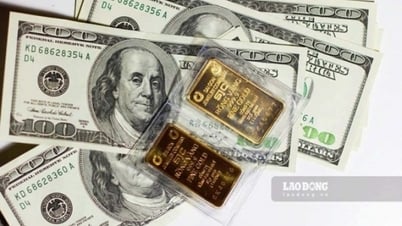

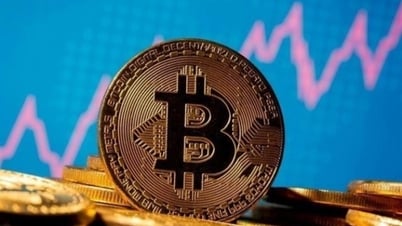
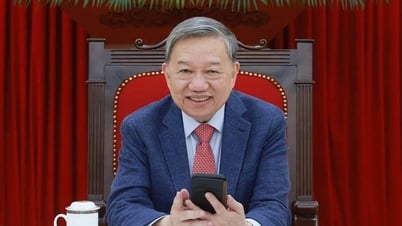

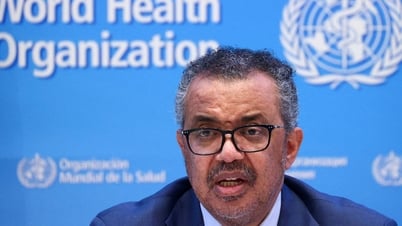



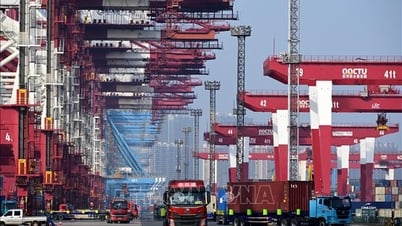















































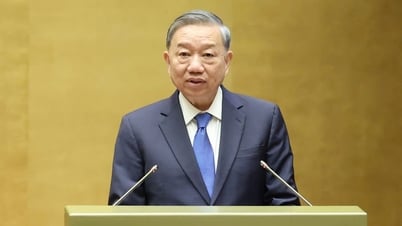


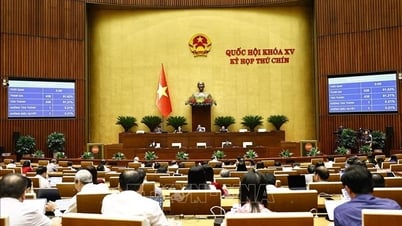















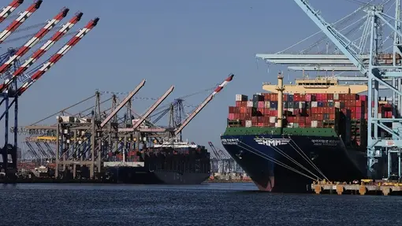














Comment (0)